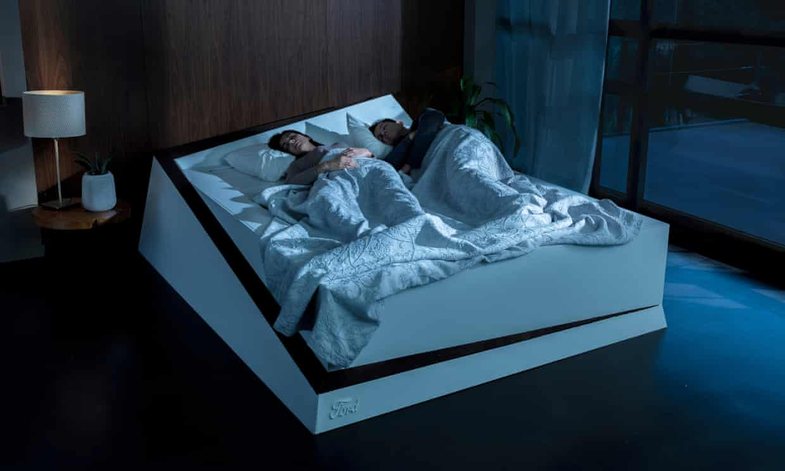
Someone proposed creating a button that when pressed, notifies the partner that you are in the mood for sex. To say you're in the mood for sex is faux pas already. On the other hand, Ford proposed an even less romantic product than this - the kind of technology that makes the partner stay on his bedside.
Ford-designed mattresses will include a mechanism that presses the partners to their side of the bed if they begin to occupy more space at night than they belong. According to studies (no doubt funded by mattress manufacturers), one in four people sleep better when sleeping alone. Which makes sense because there is no one to steal the blanket and no one to wake you up in the middle of the night with snoring. But the idea of couples sleeping in single beds is sad. It looks like a step away from Helena Bonham Carter and Tim Burton, living at home next to each other.
Perhaps Ford intends to avoid sleeping in a secluded bed, though the reason why a car company fits into this is still puzzling. Maybe relaxed people buy more cars. However, there is another problem. Couples in bed do other things than sleep. Things that need closeness and intimacy.
"People are very vulnerable when they sleep," says Neil Stanley, author of How to Sleep Well, "so we're programmed to wake up when someone or something unexpectedly touches us." But when you're in bed with your partner, a touch 'is unexpected. That's why you're there.
By Hannah Jane Parkinson for The Guardian




